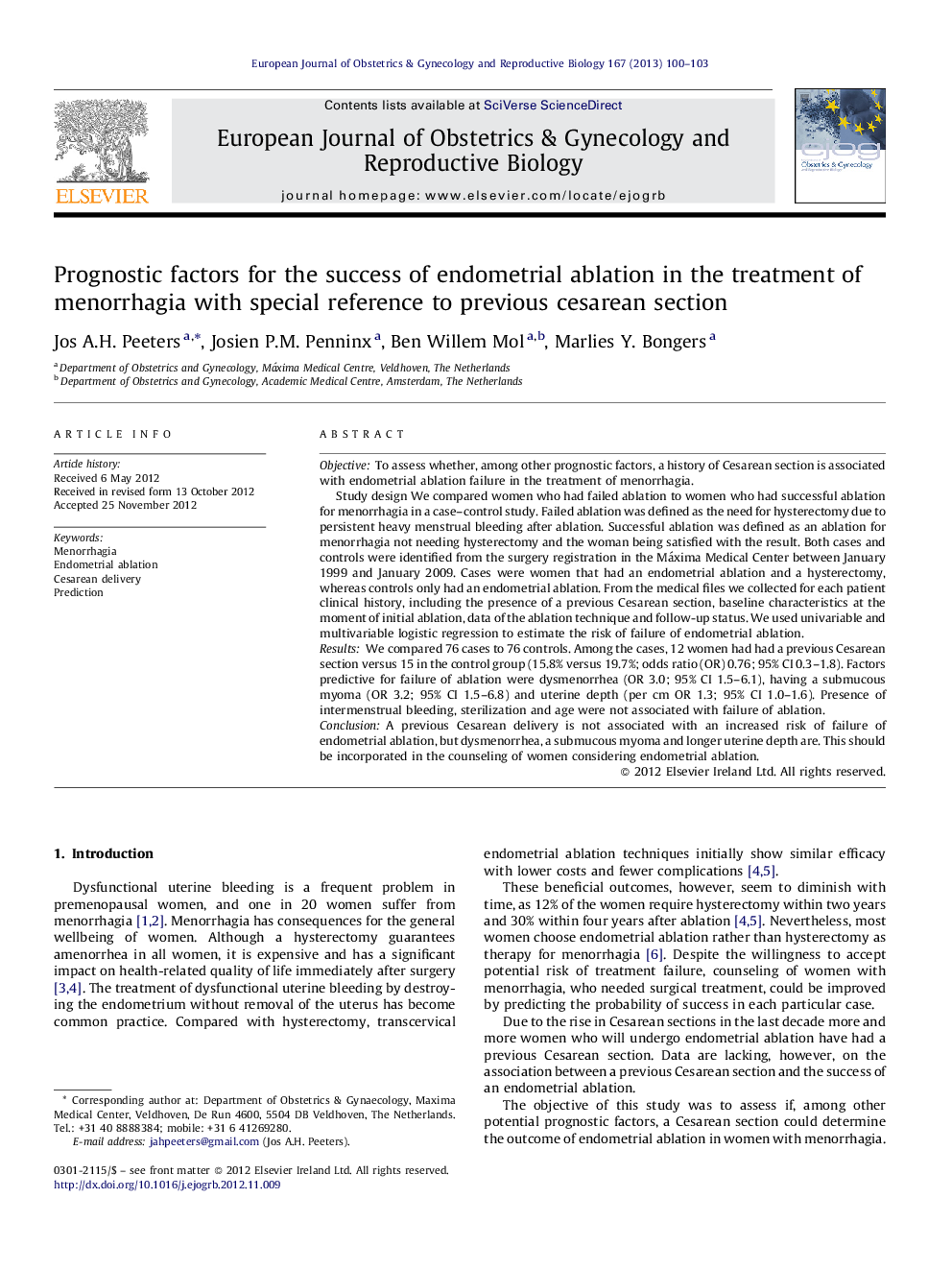| کد مقاله | کد نشریه | سال انتشار | مقاله انگلیسی | نسخه تمام متن |
|---|---|---|---|---|
| 6174259 | 1599819 | 2013 | 4 صفحه PDF | دانلود رایگان |
ObjectiveTo assess whether, among other prognostic factors, a history of Cesarean section is associated with endometrial ablation failure in the treatment of menorrhagia.Study design We compared women who had failed ablation to women who had successful ablation for menorrhagia in a case-control study. Failed ablation was defined as the need for hysterectomy due to persistent heavy menstrual bleeding after ablation. Successful ablation was defined as an ablation for menorrhagia not needing hysterectomy and the woman being satisfied with the result. Both cases and controls were identified from the surgery registration in the Máxima Medical Center between January 1999 and January 2009. Cases were women that had an endometrial ablation and a hysterectomy, whereas controls only had an endometrial ablation. From the medical files we collected for each patient clinical history, including the presence of a previous Cesarean section, baseline characteristics at the moment of initial ablation, data of the ablation technique and follow-up status. We used univariable and multivariable logistic regression to estimate the risk of failure of endometrial ablation.ResultsWe compared 76 cases to 76 controls. Among the cases, 12 women had had a previous Cesarean section versus 15 in the control group (15.8% versus 19.7%; odds ratio (OR) 0.76; 95% CI 0.3-1.8). Factors predictive for failure of ablation were dysmenorrhea (OR 3.0; 95% CI 1.5-6.1), having a submucous myoma (OR 3.2; 95% CI 1.5-6.8) and uterine depth (per cm OR 1.3; 95% CI 1.0-1.6). Presence of intermenstrual bleeding, sterilization and age were not associated with failure of ablation.ConclusionA previous Cesarean delivery is not associated with an increased risk of failure of endometrial ablation, but dysmenorrhea, a submucous myoma and longer uterine depth are. This should be incorporated in the counseling of women considering endometrial ablation.
Journal: European Journal of Obstetrics & Gynecology and Reproductive Biology - Volume 167, Issue 1, March 2013, Pages 100-103
